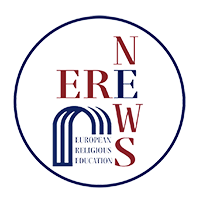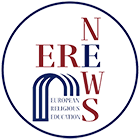On the 28th of April 2022, the Catholic Archdiocese of Hamburg joined the project ‘Religious Education for All (RUfa)’ (Religionsunterricht für alle). Read more: https://www.ndr.de/nachrichten/hamburg/Religionsunterricht-fuer-alle Katholische-Kirche-macht-mit,religionsunterricht118.html; https://www.zeit.de/2021/23/religionsunterricht-hamburg-paedagogik-islam judentum-christentum-alevitentum .
This is a unique initiative for allowing all students in a class to attend religious education together, in contrast to the other federal states, where religious instruction is given separately according to denomination and religion. In the public school of Hamburg, teacher from Catholic, Lutheran, Muslim, Alevilik or Jew faiths trained in Hamburg university for this specific role, can teach Lutheranism, Catholicism, Islam, Alevism or Judaism to all the students who are from these religions, from other faiths or they are not religious. The character of the religious education offered is inter-religious and other religions will join the project.
RUfa 2.0. follows RUfa 1.0., an experiment presented back in 2011 to the municipality of Hamburg but started at the school in 2012 by the religious community’s desire for inclusive religious education. Hamburg, which is Germany’s second most populous city and has an autonomous federal government, has a culturally diverse demographic characterised by a majority that is non-religious or different from the historically most present Christian denominations, Lutheran and Catholic. There is an important presence of Muslims and a large Jewish community.
Religious instruction, provided in Hamburg’s public schools according to Article 7 paragraph 3 of the German Constitution, has always been a denominational curricular hour, “according to the principles of religious communities”, and the sole responsibility of the Protestant Church. Since the 1990s, however, more attention has been paid to religious diversity: ‘Religious Education for All under Evangelical Responsibility’ has been opened to all students, accommodating the different needs of students according to their religious and non-religious denomination. An ‘Interfaith Religious Education Discussion Group’ (GIR), ‘Gesprächskreis interreligiöser Religionsunterricht’ (GIR), a multi-religious team of representatives from the Lutheran Church, which also invited members of other religious communities to define the curriculum, was set up.
This model, called RUfa 1.0 since 2012, gives way to RUfa 2.0. Thanks to the agreements signed by the City of Hamburg in 2012 with the three Muslim communities (DITIB-Nord, SCHURA-Hamburg and VIKZ) and with the Alevite community, the public authorities officially recognise the religious communities and nominate them (together) as being responsible for religious education in public schools. The Jewish community joined this project in 2014. As of 2019, the archdiocese was also invited to collaborate in teaching as part of a shared responsibility. Finally, on 28 April 2022, the Catholic Church came out in favour.
Hamburg Senator Ties Rabe (SPD) in responsible for school and religion, interviewed by zeit.de expresses his satisfaction, calling the project ‘an earthquake from a religious point of view’ and addressing the Archbishop of Hamburg Stefan Hess who coordinated the bishops’ conference in the decision: ‘a brave man who said we would make it. Because questions of church law alone would probably have kept the lawyers busy for the next 15 years. I was a bit surprised, but also moved, that he was able to explain and coordinate this to some measure in the bishops’ conference’.
Read more: https://www.ndr.de/nachrichten/hamburg/Religionsunterricht-fuer-alle Katholische-Kirche-macht-mit,religionsunterricht118.html
The big decision taken, therefore, by the Lutheran and Catholic Churches is the renunciation of their own teaching hours, allocating them instead to interreligious and combined teaching with other religions. In fact, the German Constitution provides for religious curricular teaching of a confessional nature in state schools, since the school as a place of knowledge and education cannot ignore the religious dimension of human existence (Art. 7 paragraph 3). Religious education is based on the doctrine of faith and the ethical and moral philosophy that characterises every religion (Art. 7 paragraph 3). Religious education is ‘res
mixtae’, coordinated together
by the State and the Church. The Church provides the teachers, decides on the method of study, the content of the books, the syllabuses, and the educational offerings “religious instruction must be given according to the doctrine of faith and the fundamental principles of the religious communities present in the territory” (Art. 7 paragraph 3). The state supervises the effective implementation of the programmes and the discipline of students and teachers. Some schools activate a teaching of philosophy, ethics and morals as an alternative for those who do not take religious instruction. In fact, the hour of religion or the alternative hour of philosophy ethics/morality are compulsory subjects in the curriculum. In some Länder, and with not a few difficulties, there are also teachings of Islam as an option in the religious education curriculum. To date, only three Länder offer the teaching of Islam, North-Rhine Westphalia (‘NRW’) since 2012, Hesse and Lower Saxony since 2013. Berlin offers Islamic teaching but not as a compulsory religion hour and is the responsibility of the school itself (Religious Education in Germany considering Religious Diversity: Constitutional Requirements for Religious Education, Fabius Wittmer* and Christian Waldhoff, German Law Journal (2019), 20, pp. 1047-1065, Cambridge University Press. 2019. p.1058).
“Religionsunterricht für alle” is also a pilot project with respect to teacher training, choice of course offerings and course materials. In fact, all candidates of Christian Lutheran religion, Christian Catholic religion, Muslims belonging to the communities involved, Alevites, Jews and non-religious teachers can fulfil the teaching. To become a teacher, the candidates follow a course at the University of Hamburg, in the new department entitled ‘Religions’, where courses in the history, theology and philosophy of Christianity, Islam, Judaism and Alevite religion are taught for all types of schools. The preparatory service for the subject Religion has been open to Muslim, Alevi and Jewish candidates since 2017. There is an internship at the state institute, conducted by a multi-religious team.
The curriculum is managed by various institutions, first of all by the mixed commission (‘Gemko’) consisting of the School and Vocational Education and Training (BSB) authorities and the (Protestant) North Church, which has so far been the sole decision-making body; separate commissions have also been set up by the school authorities with all the religious communities involved. The various working groups are coordinated by a ‘working group for the further development of religious education’, which has since been renamed the ‘RUfa Commission’. In addition, a ‘group of specialists’ from other religions besides the officially appointed and recognised ones is involved; these other religions do not yet share responsibility for religious education because the necessary legal requirements are not satisfied.
The implemented teaching programmes were tested by a multi-religious team of teachers who then developed exemplary teaching units. A detailed evaluation was carried out and published by the IfBQ and is available online: (https://www.hamburg.de/bsb/ifbq-evaluation-religionsunterricht-fuer-alle/)
Based on the positive experiences of the test, the central didactic principles of RUfa 2.0. were (partially) redesigned and a new curriculum structure was developed accordingly.





